6. Kuroneko (1968)
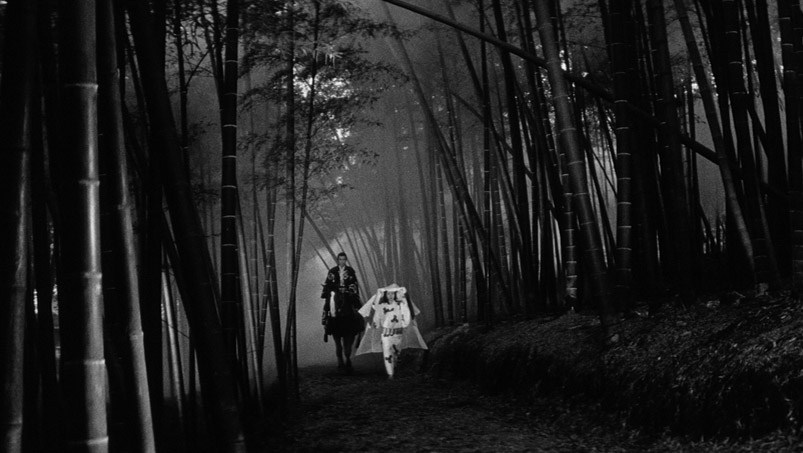
Another one of del Toro’s favorite ghost stories, “Kuroneko” is a fabulous slice of Japanese phantasmagoria; a film just as immaculately beautiful to look at as it is fascinating to watch.
It forms a terrific double bill with another Kaneto Shindo masterwork, “Onibaba” (mentioned in the previous list), a movie to which “Kuroneko” feels in every way a spiritual successor to. It’s impossible to compare or rank the two on a quality basis, that would be akin to comparing the appearance of twins – sure, if you look long and hard enough you’ll find differences, but at the expense of the overwhelming similarities.
Which is not to say either film lacks an individual identity, only that they communicate with each other so beautifully that their full power is best enjoyed as a whole. As del Toro says, “The tales seem to fit together so perfectly that they fuse into one as time goes by. Onibaba and Kuroneko make a perfect double bill for the second circle of hell.”
7. Raw Meat (1972)
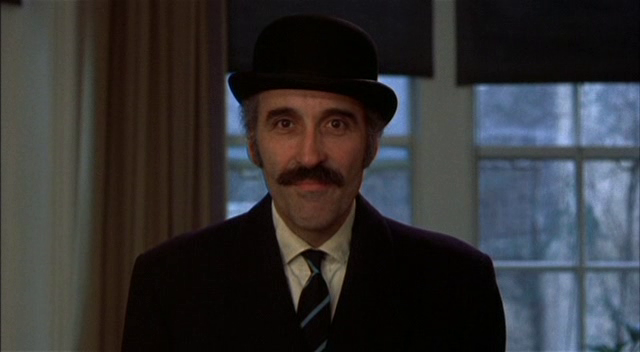
Another marvelous piece of genre sleaze that also happens to have a well-constructed social commentary (proving yet again how ridiculous the idea of “post-horror” really is), “Raw Meat” (or “Death Line”) is a police procedural and a cannibal flick for the price of one.
Fair warning for those who haven’t seen it, this film is tonally very far from your typical slasher; it’s an unusually mournful and ponderous movie in which director Gary Sherman infuses the story with an overwhelming sense of dread and sadness. So, naturally, not the type of thing where one cheers at the deaths of terrible characters as in an average slasher; which by no means signifies that the picture lacks thrills (it absolutely doesn’t, you can trust that), only that it is a much more serious-minded horror offering than usual.
“Raw Meat” is, as del Toro puts it, a “multi-layered horror story / class struggle allegory” featuring a terrific Donald Pleasence performance and one of the very best long takes ever put to film.
8. Alice, Sweet Alice (1976)
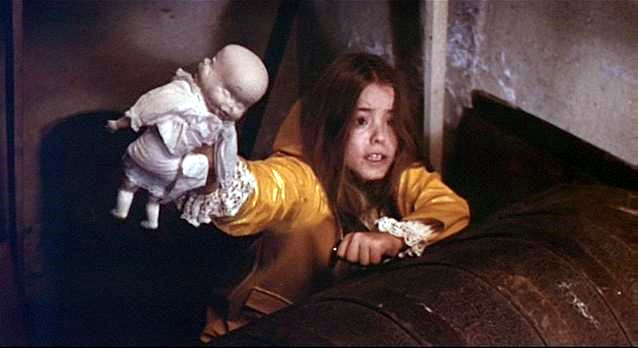
The ‘70s were possibly the very best decade for American cinema; an inimitable period of creative freedom, formal experimentation, and thematic daringness. Naturally, that includes horror, with movies such as “The Texas Chainsaw Massacre” and “Halloween” redefining the genre and becoming bonafide classics of cinema.
But, as always, the canon is problematic and incomplete, since there are many essential films that for whatever reason slip widespread acclaim. Such is the case of “Alice, Sweet Alice”; one of the only true American giallos and just a terrific example of genre, despite nationality.
Like most worthy ‘70s American cinema, the film is deeply adult and disturbing, teeming with psychosexual subtext, religious subversion, and violent imagery; all around one of the most gnarly and sacrilegious genre pictures of it’s time. As del Toro accurately describes it, it’s “a virulent, misanthropic murder thriller with perverse smarts … Brilliant, smart, creepy as fuck.” Mileage may vary with regards to how much a viewer can stomach it, but those with a strong stomach will be in for a magnificent ride.
9. In the Mouth of Madness (1994)
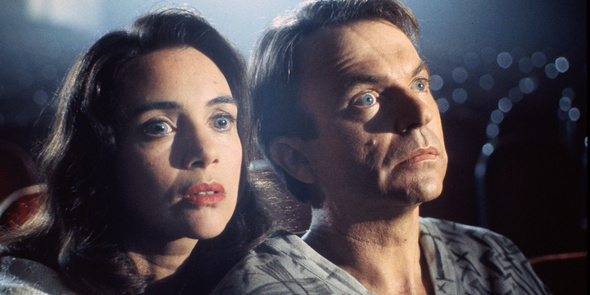
Del Toro famously tried for years to adapt Lovecraft’s “In the Mountains of Madness” into a film; he even got very close once only to see the project fall apart again due to budget disputes. Alas, his love for this John Carpenter stunner is self-explanatory.
It’s strange that there aren’t more Lovecraft adaptations in general; never mind the fact that truly great ones are almost non-existent. The best movies to not only capture the author’s idea of cosmic horrors but also be complete cinematic experiences unto themselves aren’t direct adaptations, but rather stories inspired by his work. Case in point, “In the Mouth of Madness,” Carpenter’s meta masterpiece, which is both a wry, self-reflexive deconstruction of horror tropes and also a genuinely phenomenal horror movie unto itself.
The imagery is some of the most breathtaking of Carpenter’s whole career, his typical widescreen compositions making the most out of the incredible production design; the plot is maniacally playful, the actors unwaveringly committed. In summary, del Toro put it best: “In the Mouth of Madness” is a “fun, smart, shocking Lovecraftian riff.”
10. Spring (2014)
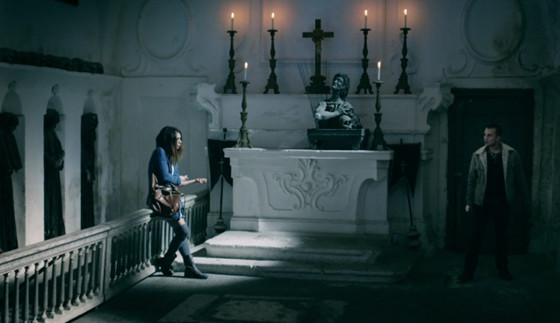
And speaking of Lovecraftian riff, Benson and Moorhead’s creature feature romance “Spring” is in very high regard as far as del Toro is concerned – the filmmaker’s love for this film is so intense he made sure to call it “one of the best horror films of this decade. And the only Lovecraftian film that has blown me away.”
Being familiar with del Toro’s tastes, it’s easy to understand why feels so strongly about “Spring”: not only is the film obviously inspired by Lovecraft, it’s a love story between a “monster” (one of the director’s biggest obsessions) and a human, one the signature elements of del Toro’s artistic sensibility (present in “The Shape of Water,” of course, but also in the “Hellboy” movies).
But if you don’t share del Toro’s obsessions, don’t worry – “Spring” is still every bit as engaging a narrative, with strong characterization and a surprisingly grounded relationship at its center.